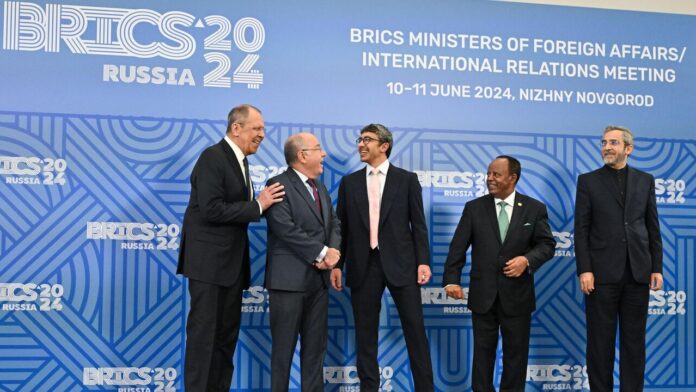A report by the Russian newspaper, Sputnik, revealed that the Foreign Ministers of Ethiopia and Russia, Taye Atske Selassie and Sergey Lavrov met at the BRICS and UN Security Council to discuss the possibility of bolstering the economic relationship between both countries.
On the margins of the BRICS meeting which is taking place in Nizhny Novgorod, Russia, till Tuesday, the Ministers of both nations had a conversation on how these two nations can leverage their relationship. To this effect, they released a statement listing areas of collaboration.
“The main directions for further enhancing bilateral mutually beneficial cooperation, including the expansion of trade and economic, scientific, technical, scientific and humanitarian cooperation, were thoroughly discussed,” the statement read.”
According to the Sputnik report, the two countries reaffirmed their dedication to bolstering political conversation and unifying their strategies within the UN and BRICS, particularly while Russia serves as the group’s chairman.
At the meeting, there was also a private conversation on working with foreign groups. Along with discussing crises throughout Africa, the ministers concentrated particularly on the situation in the Horn of Africa.
In February, Ethiopia alongside Egypt, Iran, Saudi Arabia, and the United Arab Emirates officially became a member of the BRICS bloc. This came after an invitation from the group in 2023.
These five countries were asked to join the bloc during an August conference in Johannesburg, joining the existing BRICS members, Brazil, Russia, China, India, and South Africa.
BRICS group
The BRICS group, originally consisting of Brazil, Russia, India, China, and South Africa has been aggressively pushing to change the order of the globe’s economic structure.
The group’s primary intention is to dominate the global market by increasing its economic influence. To accomplish this, the group began by bringing together the aforementioned original members, all of whom share a similar economic ethos, and subsequently add new members.





